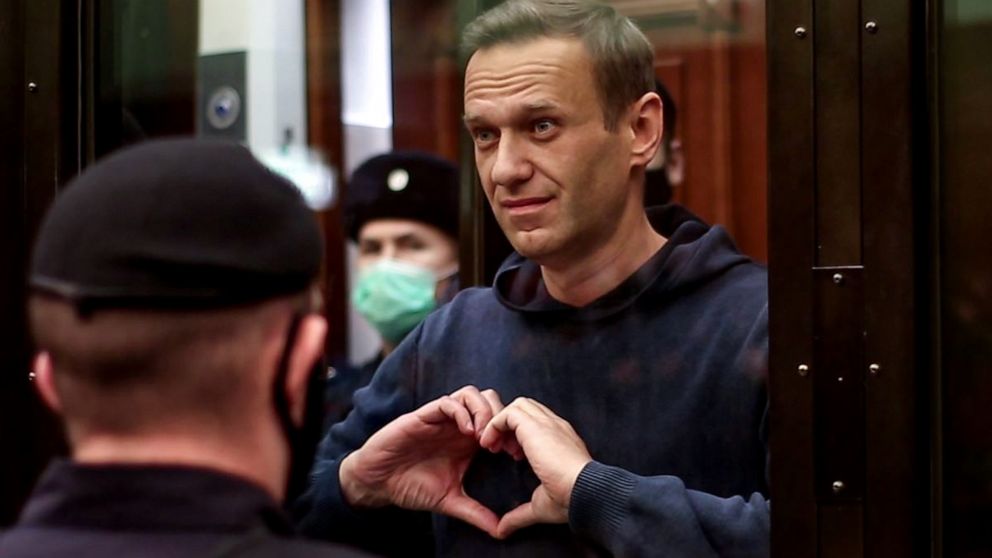Putin critic Navalny ordered to prison camp for over 2 years by Russian court
MOSCOW -- A Russian court has ordered opposition leader Alexey Navalny be sent to a prison camp for two years and eight months, imprisoning President Vladimir Putin's fiercest critic despite an international outcry and protests in Russia that have roiled the country.
At a hearing in Moscow's city court Tuesday a judge ruled Navalny should be imprisoned for breaking the parole terms of a suspended sentence for fraud from a 2014 trial that has been previously widely criticized as politically motivated. The judge upheld the request from prison officials who claimed Navalny had repeatedly failed to appear for probation appointments last year, including during the period when he was recovering in Germany from his near-fatal nerve agent poisoning six months ago.
The decision to imprison Navalny is widely seen as an attempt by the Kremlin to neutralize him as a political threat following his return to Russia from Germany, where he had recovered from the poisoning that he blames on the Kremlin.
Navalny, a 44-year-old former lawyer, has become one of Putin's most significant opponents, building a grassroots following through investigations posted online exposing alleged corruption among powerful Russians close to the Kremlin and sometimes directing some of Russia's largest street protests in recent years. He was arrested as soon as he landed in Moscow two weeks ago, triggering unusual protests that have since seen thousands detained.
As he stood waiting for the verdict, Navalny drew a heart sign for his wife Yulia Navalny, who was watching in the courtroom, on the glass cage in which he was held.
Throughout the hearing, he lambasted the prosecutors and prison officials, calling the hearing a show trial ordered by the Kremlin.
In a fiery closing speech, he told the judge he was being jailed because he had "mortally offended Putin by surviving" the nerve agent poisoning, which Navalny has blamed on the Russian president.
"We know why this is happening," he said. "The reason for all this is the hate and fear of one person."
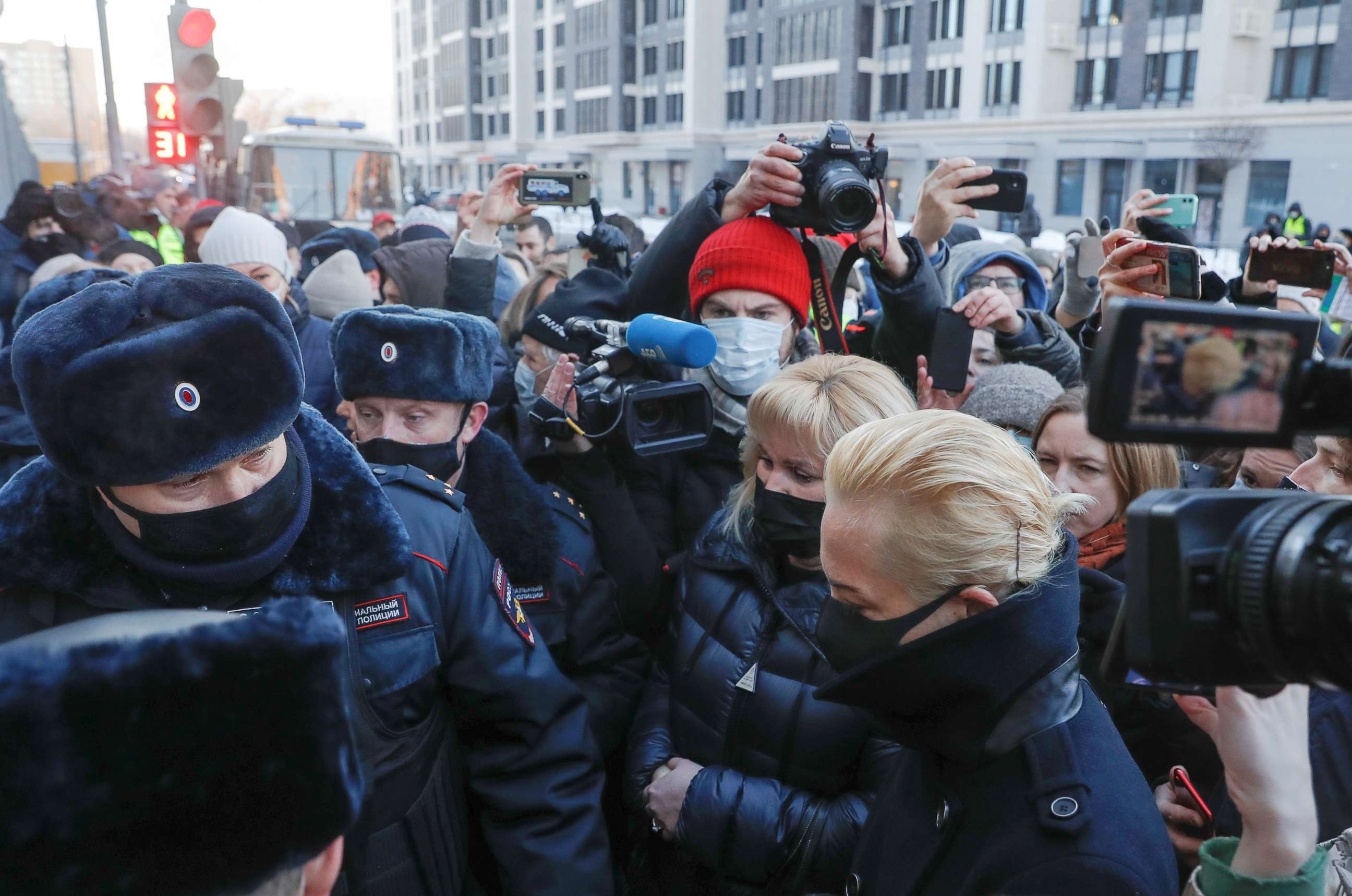
Navalny has accused Putin of ordering his poisoning, saying members of Russia's domestic intelligence agency, the Federal Security Service, put the nerve agent into his underwear.
"His main grievance against me is that he will go down in history as a poisoner," Navalny said Tuesday. "You've got Alexander the Liberator and Yaroslav the Wise. And now we'll have Vladimir the Underwear Poisoner."
Immediately after the sentence, Navalny's supporters called on people to gather in Manezh Square under the walls of the Kremlin. Several hundred Navalny supporters -- mostly young people -- tried to walk through the city center chanting "we won't forget" and "one for all, all for one." But authorities deployed a major police presence, massing riot officers on the square. Lines of police with helmets and batons marched as a wall down some central streets, clubbing some demonstrators and detaining people.
By the end of the night, over 1,000 people had been detained nationally, with most in Moscow and St. Petersburg. During the trial Tuesday, police sealed off several streets around the court and lines of helmeted riot officers swiftly detained protesters that tried to approach.
Tuesday's ruling prompted immediate criticism from European countries and the United States, with U.S. Secretary of State Antony Blinken issuing a statement calling for the immediate release of Navalny and those detained at recent protests.
Blinken said the proceedings "are a continuation of efforts to violate Mr. Navalny's rights and suppress political pluralism." He said the U.S. would work with its allies to hold Russia accountable for failing to uphold the rights of its citizens.
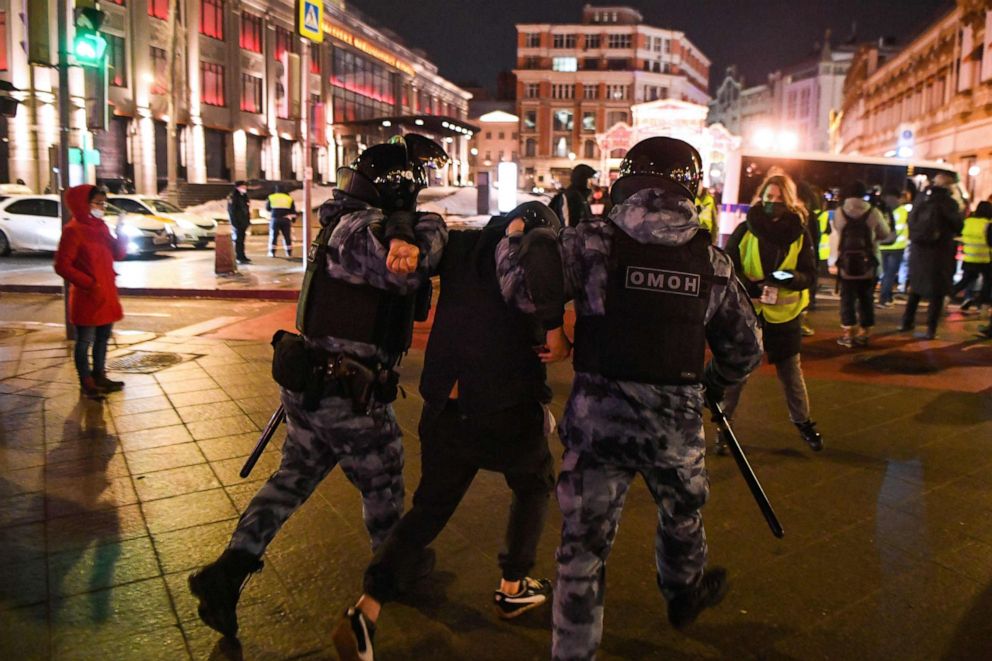
French President Emmanuel Macron also called for Russia to free Navalny immediately, writing on Twitter, "The respect for human rights like that of democratic liberty are not negotiable."
The sentence Navalny is accused of violating parole for is from a 2014 embezzlement trial widely criticized as politically motivated and that the European Court of Human Rights found was unjust and part of a pattern of political persecution of Navalny. The suspended sentence was for 3 1/2 years, but the judge on Tuesday reduced it to take into account a year Navalny already spent under house arrest.
Through the court hearing, Navalny laughed and joked, mocking the case against him and engaging in sometimes-heated exchanges with the judge and the prosecution.
Prison officials argued that he had failed to check in twice a month with prison authorities as required by the terms of his suspended sentence for much of last year and accused him of "hiding" in Germany during the period when he was hospitalized there for the nerve agent poisoning that left him in a coma for three weeks.
Navalny asked the prison representative in court how he could have checked in while he was in a coma. The officials said he had also failed to appear on occasions before he was hospitalized and said Navalny ought to have returned sooner to Russia after he was discharged from the hospital.
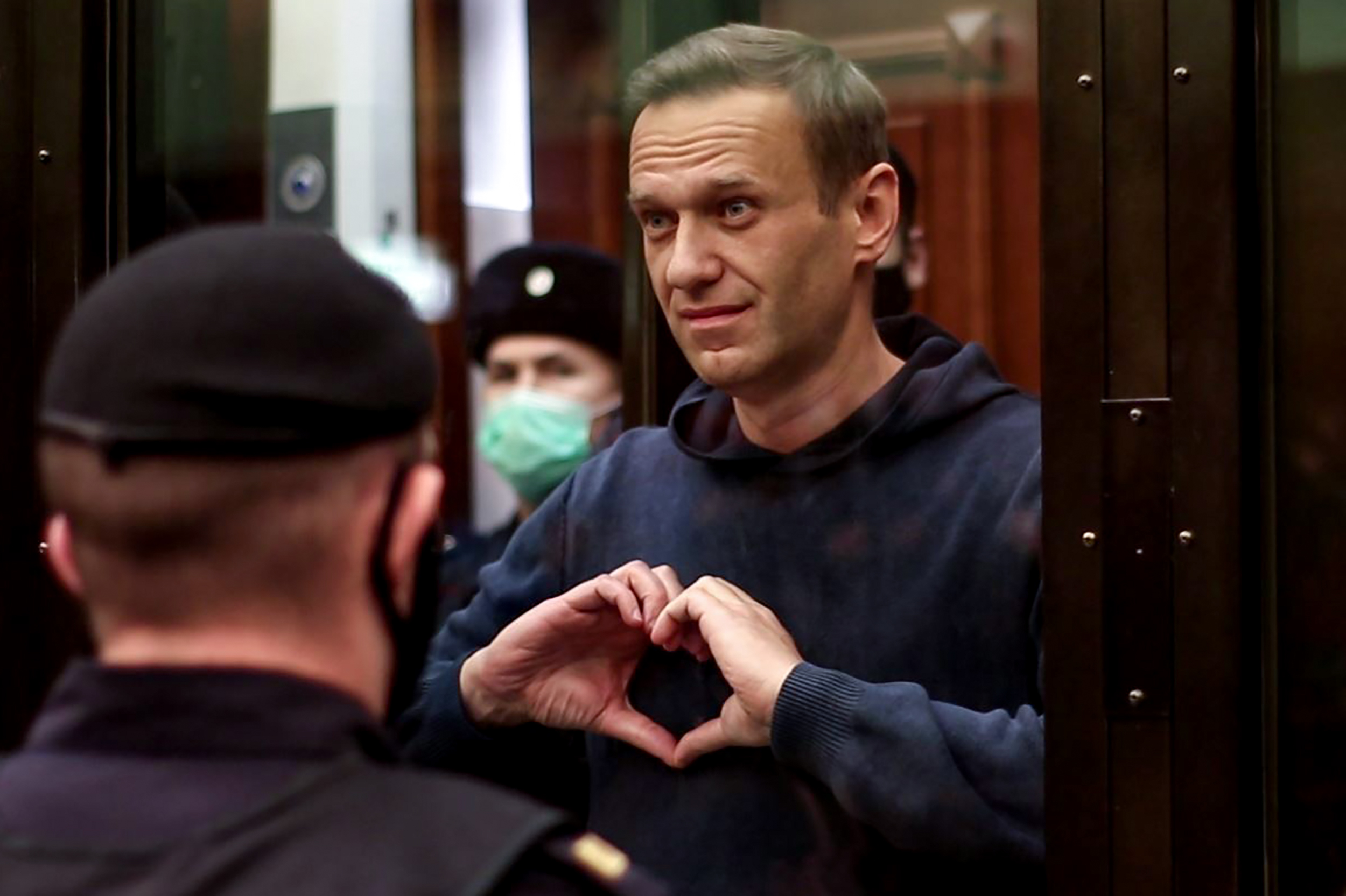
Navalny's arrest triggered protests by thousands of people across Russia for the past two weekends, coming out despite a huge security clamp-down. On Sunday, 5,400 people were detained, the most during protests under Putin.
In a post on social media, Leonid Volkov, a top lieutenant of Navalny, said that his group would not stop its investigations or activism and "everything is only beginning." Volkov, who is currently abroad, is one of the few members of Navalny's team not in detention following the crackdown over the past two weeks.
Navalny has been jailed briefly many times for his activism, but never for a lengthy period at a prison camp, something many observers believe the Kremlin had previously deemed not worth the potential political fallout.
He was originally sentenced to prison time in 2014, but after an outcry and small protests in Moscow, law enforcement officials released him.
The decision to press ahead with jailing Navalny this time, despite a far greater outcry, suggests the Kremlin's calculus has changed and it now views it as too dangerous to allow Navalny to remain free.
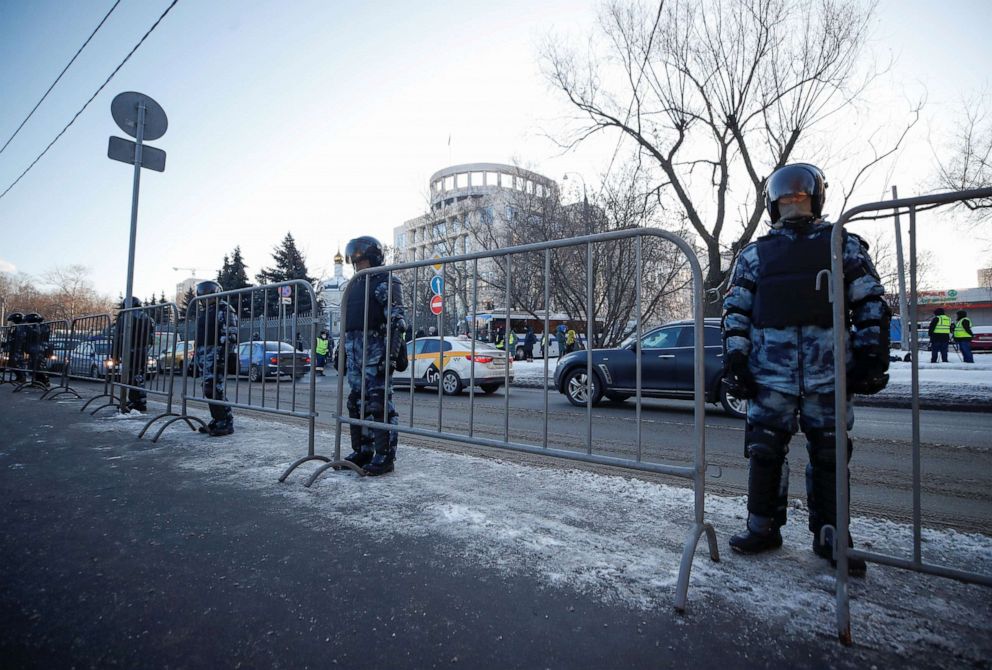
The Kremlin has denied any role in Navalny's poisoning, and spokesman Dmitry Peskov told reporters on Tuesday that Putin was not following the trial. Peskov said he hoped European countries would not do what he called the "nonsense" of linking relations with Russia to Navalny's imprisonment.
Since his return to Russia, Navalny's team released a video alleging Putin secretly built a staggering luxury palace on the Black Sea. The investigation has been watched over 100 million times on YouTube and forced a rare comment from Putin denying he owns the palace. Pro-Kremlin media have since been allowed to tour the palace, and a childhood friend and former judo sparring partner of Putin, the oligarch Arkady Rotenberg, over the weekend claimed he owned the building and intended to turn it into a hotel.
In his closing speech, Navalny told the judge he hoped people would not be scared by his imprisonment.
"It's not difficult to jail me," he said. "It's a demonstration of weakness. It's impossible to jail millions and hundreds of thousands of people. And when people realize that -- and that moment will come -- then all this will fall apart."
